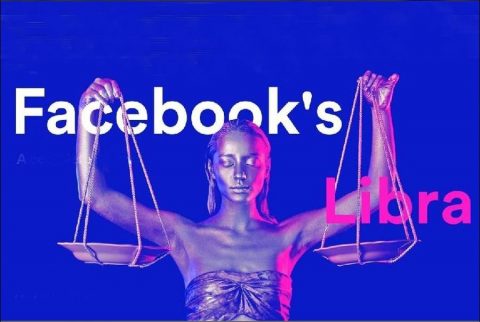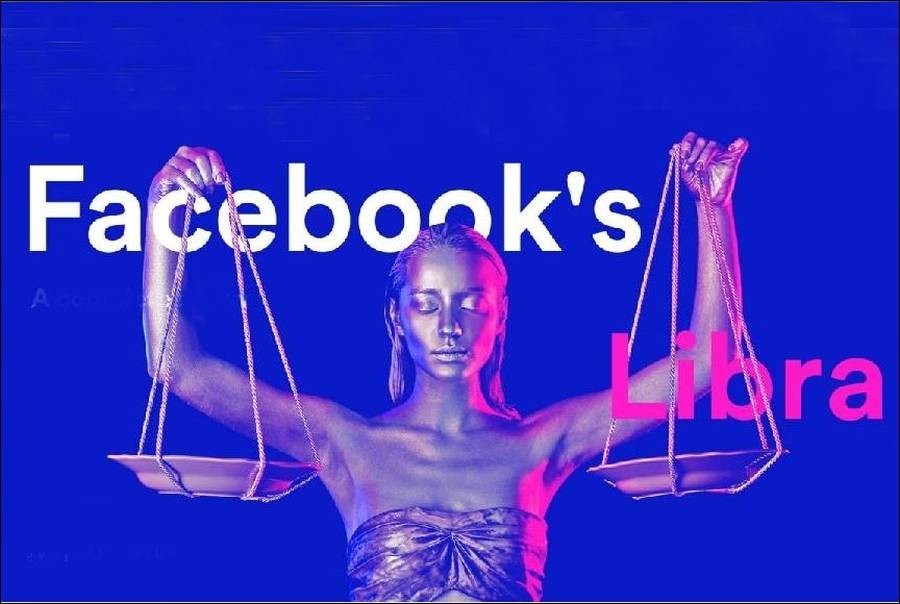It would be too ambitious to propose a definitive list of the problems that “Libra”, a highly ambitious cryptocurrency project launched under the leadership of Facebook, has the potential to raise in terms of international law. However, for now, it seems quite possible that problems will arise in basically three areas.
With the rapid migration of the physical world to the digital world, “cryptocurrencies” are among the topics that are frequently on the agenda. Because there is a possibility that cryptocurrencies will be the solution or, on the contrary, the catalyst of many critical problems that will arise in the new order in which we are envisioned to find ourselves after the current epidemic.
This fact inspired me to write this article about “Libra”, an extremely ambitious cryptocurrency project launched under the leadership of Facebook, which I have been planning to write for a long time before the COVID-19 outbreak. Because, within the framework of the discussions held when Libra was first announced, we evaluated this project as a new aspect of the growing influence of non-state actors in the international order and in terms of aspects that conflict with the traditional understanding of state sovereignty. However, it is necessary to touch on some concrete aspects of the Libra Project that need to be considered in terms of international law.
From Knights of Templar to Libra
It is worth recalling the example used by Kevin Werbach, author of The Blockchain and the New Architecture of Trust, to explain the potential importance of cryptocurrencies in general, and Libra in particular: There was no easy way for the Crusaders to use their money in distant geographies. Because local coins could have no value outside of their geography. It was impossible to carry gold, which is the currency in other geographies, in large quantities due to both its weight and safety concerns.
Of course, they did not have an opportunity such as “EFT or money order”. However, a sect called the Knights Templar based in Jerusalem at that time developed a solution to this problem. He established an international payment infrastructure where promissory notes created in France and England in accordance with certain formal conditions can be exchanged and converted into money in the Levant region. A need on a transboundary scale that emerged at that time gave birth to a solution on a transboundary scale.
Today, other kinds of cross-border needs within the framework of international money transfer have become evident. Despite the establishment of an order in which the financial economy and its institutions control the global economic system, hundreds of millions of people in different parts of the world still do not have access to the banking system, creating a serious gap. Those involved in the banking system, on the other hand, suffer greatly due to the serious costs of international money transfer or the procedures that sometimes become very difficult to overcome.
At this point, it is possible to think of Facebook as the heirs of the Knights of Templar and Libra as the heirs of the above-mentioned promissory note system. The Libra Project starts with the establishment of a private legal entity named Libra Association, in which many stakeholders are involved. The aim of this union is to create a cryptocurrency based on blockchain technology, just like Bitcoin and many other altcoins, and to put this digital currency protected by cryptography into circulation internationally.
Some aspects of Libra that make it extremely ambitious and high potential also set it apart from its biggest counterpart, Bitcoin. First of all, Bitcoin does not have a reserve like in the traditional money system. It relies entirely on the possibility of building trust based on the widespread use of this currency by the public, and therefore it has a very fragile and volatile exchange rate. However, it is envisaged that a reserve of Libra will be created. Accordingly, the Libyan Association’s stakeholders (mostly strong multinationals) will create a reserve in convertible currencies such as the US dollar, the euro and the Japanese yen. That is, when users collectively lose their trust in Libra, Libra will not become worthless and can be exchanged for resources in reserve.
Hence, it will have the basic security in the traditional monetary system. A second point is that Libra will use the infrastructure of Facebook, which has the opportunity to reach 3 billion people thanks to its social media and communication applications. Technically, it will be possible for users to transfer money as easily as sending messages to each other on Facebook and other digital platforms affiliated with the company. Bitcoin does not have such an opportunity, and access to crypto wallets is subject to very different restrictions in each country.
Of course, the differences Libra plans to create come at a price. Bitcoin is completely decentralized, that is, it offers complete independence with its system not dependent on any government or private authority. This provides the basis to ensure that it is free from any control and additional costs of transferring funds. In fact, according to the famous international lawyer Eric Posner, Bitcoin etc. cryptocurrencies should be seen as a move that removes the monopoly of states.
Libra, on the other hand, is a project that will eventually have its own status quo, although it promises to design a technological infrastructure in a way that predicts a much more flexible model than the traditional monetary system and reduces centralization. Only the status quo will have passed from a public authority to a private one. But it’s also possible that such a situation could be a good middle ground, which offers remarkable solutions to bottlenecks in the traditional monetary system, but also eliminates the vulnerabilities of currencies like Bitcoin.
Visits: 80




